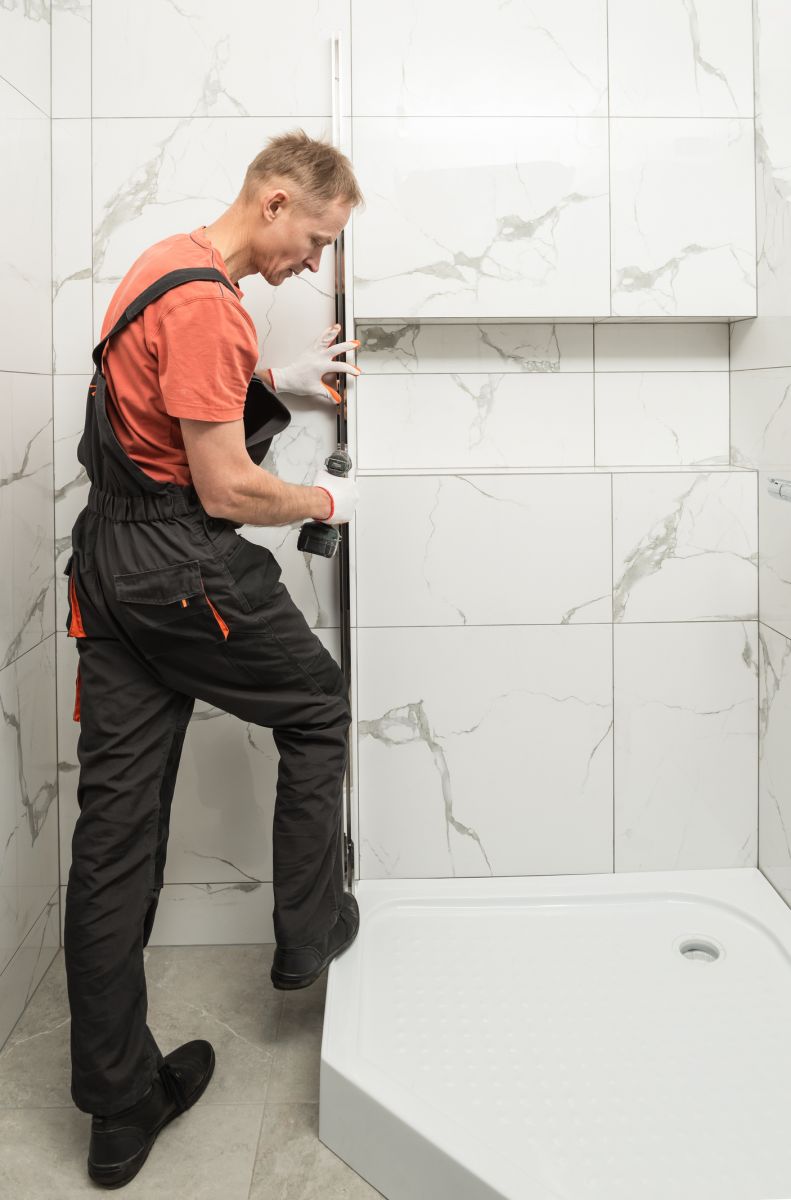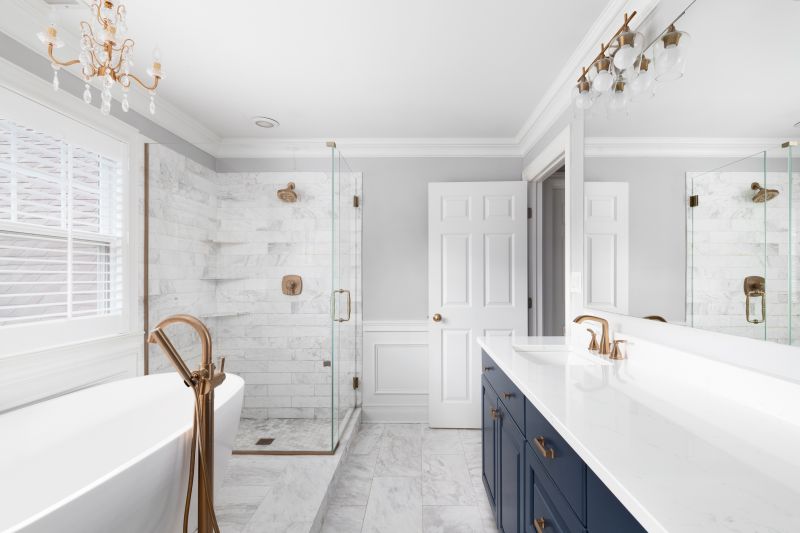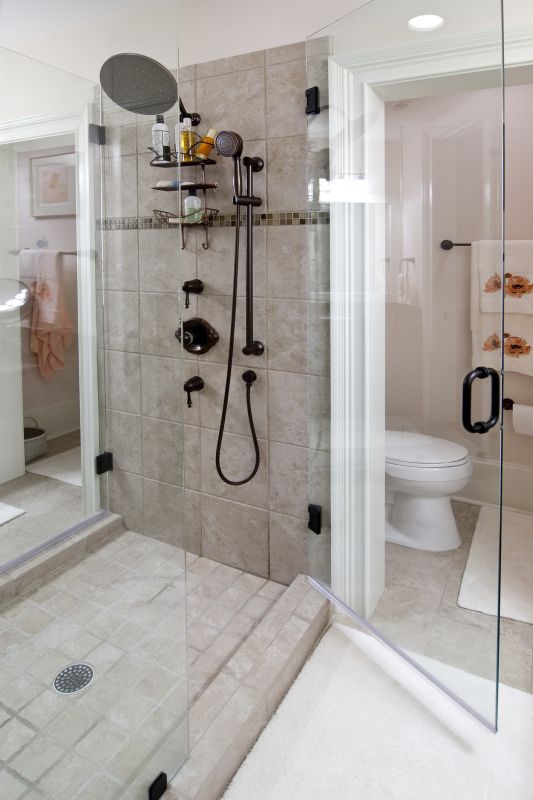Shower Base Installation Options
Welcome to Aberdeen Showers
Understanding Shower Base Installation
Shop for Understanding Shower Base Installation

When considering a bathroom remodel, selecting the right shower base is a crucial decision for homeowners. The shower base, also known as a shower pan, serves as the foundation of your shower and plays a vital role in both the functionality and aesthetics of your bathroom. Understanding the various options available can help you make an informed choice that fits your needs and budget.
Shower bases come in a range of materials, each offering distinct advantages. Acrylic is a popular choice due to its durability and ease of maintenance. It is lightweight and available in various colors, making it versatile for different design preferences. Fiberglass is another common material, known for its affordability and ease of installation.
Ceramic and porcelain tiles are favored for their classic appearance and ability to be customized in terms of color and pattern. However, they require more maintenance to prevent grout lines from staining. Stone bases, such as granite or marble, offer a luxurious feel but come at a higher cost and may require sealing to maintain their appearance.
When planning for a shower base installation, size and shape are critical considerations. Standard sizes are available, but custom dimensions can be ordered to fit unique spaces. Homeowners should measure their bathroom layout carefully to ensure the chosen base fits seamlessly. The shape of the shower base, whether square, rectangular, or neo-angle, will also impact the overall design and space utilization.
Drain location is another important factor. The position of the drain can affect the plumbing work required and should align with existing bathroom infrastructure to minimize additional costs. Common drain configurations include center, offset, and linear drains, each offering different aesthetic and functional benefits.
Installation methods vary based on the type of shower base. Some bases are designed for direct-to-stud installation, simplifying the process, while others may require a mortar bed for added stability. It's essential to understand the requirements of your chosen base to ensure proper installation and longevity.
For homeowners in Aberdeen, North Carolina, considering the local climate and water conditions can influence material choice. High humidity levels may necessitate materials with better moisture resistance, while hard water can impact maintenance routines.
Maintenance of your shower base is crucial to extend its lifespan. Regular cleaning with non-abrasive products helps prevent mold and mildew buildup. It's also important to inspect the caulking and grout lines periodically to address any wear or damage promptly.
Here is a brief glossary of terms related to shower base installation:
- Acrylic: A lightweight, durable material often used for shower bases.
- Mortar Bed: A layer of cement mortar used to support certain types of shower bases.
- Neo-Angle: A shower base shape with a corner cut off, often used in corner installations.
- Linear Drain: A long, narrow drain that offers a sleek look and efficient water drainage.
- Grout: A mixture used to fill gaps between tiles, requiring maintenance to prevent staining.
By understanding these options and considerations, homeowners can select a shower base that complements their bathroom design while meeting functional needs. Whether prioritizing aesthetics, durability, or ease of maintenance, the right choice can enhance both the value and enjoyment of your home.
Types of Shower Bases
Exploring Various Shower Base Materials and Designs
When planning a bathroom renovation, selecting the right shower base is an essential decision that can impact both aesthetics and functionality. Shower bases, also known as shower pans, come in various materials and designs, each offering unique benefits and considerations. Understanding these options can help homeowners in Aberdeen, North Carolina, and beyond make informed choices that align with their needs and preferences.
One popular type of shower base is the acrylic base, known for its lightweight nature and smooth finish. Acrylic bases are typically easy to install and maintain, making them a favored choice for many homeowners. They are available in a variety of shapes and sizes, allowing for flexibility in design. However, they may be prone to scratching, so careful cleaning is advised.

Fiberglass shower bases are another common option, appreciated for their affordability and ease of installation. These bases are made from reinforced plastic and are often coated with a gel finish to enhance durability. While fiberglass is a cost-effective option, it may not offer the same longevity as other materials, as it can be susceptible to cracking over time.
For those seeking a more robust and long-lasting solution, cast iron shower bases provide exceptional durability. These bases are coated with enamel, offering a classic look that complements traditional bathroom designs. Although heavier and more challenging to install, cast iron bases are resistant to chipping and scratching, making them a worthwhile investment for many homeowners.
Tile shower bases offer a customizable option for those looking to achieve a specific aesthetic. With a wide range of tile materials and designs available, homeowners can create a unique look tailored to their personal style. However, tile bases require regular maintenance to prevent grout lines from becoming discolored or damaged over time.
Solid surface shower bases are made from a blend of natural and synthetic materials, providing a seamless and contemporary appearance. These bases are non-porous, making them resistant to mold and mildew. They offer a sleek look and are available in various colors and patterns, allowing for a high degree of personalization.
- Acrylic: Lightweight, smooth, and easy to maintain.
- Fiberglass: Affordable and easy to install, but may crack over time.
- Cast Iron: Durable and resistant to scratches and chips.
- Tile: Customizable with a range of materials and designs.
- Solid Surface: Seamless and contemporary with mold resistance.
In summary, the choice of shower base material and design should consider factors such as installation ease, durability, maintenance requirements, and personal style preferences. Each type of shower base offers distinct advantages and potential drawbacks, making it important to evaluate which option aligns best with the specific needs of a bathroom project. By understanding the various types of shower bases available, homeowners can make informed decisions that enhance both the functionality and aesthetic appeal of their bathrooms.
Planning and Maintenance Considerations for Shower Bases
Shop for Planning and Maintenance Considerations for Shower Bases
Layout, Installation, and Upkeep Tips for Optimal Performance
When homeowners in Aberdeen, North Carolina, embark on a bathroom renovation, selecting the right shower base is a crucial element of the planning process. A shower base, also known as a shower pan, serves as the waterproof floor of the shower, channeling water toward the drain. Understanding the various types and materials available can significantly impact the functionality and longevity of the shower area.
Shower bases come in a variety of materials, including acrylic, fiberglass, cast iron, and tile. Each material offers distinct advantages. Acrylic and fiberglass are popular choices due to their lightweight nature and ease of installation. Cast iron provides durability and a classic look, while tile offers the most customization in terms of design but requires more maintenance. Homeowners should consider the specific needs of their household, such as ease of cleaning and resistance to wear, when selecting a material.

Proper planning for shower base installation involves assessing the available space and ensuring that the base will fit seamlessly into the bathroom layout. Accurate measurements are essential to avoid any costly modifications during installation. Additionally, drainage is a critical factor; the slope of the shower base must be sufficient to direct water toward the drain efficiently, preventing water accumulation and potential damage.
Maintenance considerations are equally important in preserving the functionality and appearance of a shower base. Regular cleaning with non-abrasive products is recommended to prevent the build-up of soap scum and mineral deposits. For tile bases, periodic resealing of grout lines can help maintain their waterproof integrity. Homeowners should also routinely check for any signs of leaks or wear, addressing these issues promptly to avoid more extensive damage.
In Aberdeen, where humidity levels can be high, ensuring proper ventilation in the bathroom is an additional consideration. Adequate ventilation helps reduce moisture levels, minimizing the risk of mold and mildew, which can affect both the shower base and the surrounding bathroom surfaces.
- Acrylic: Lightweight and easy to install, good for quick renovations.
- Fiberglass: Affordable and available in various designs, but may scratch easily.
- Cast Iron: Durable and classic, but heavier and more expensive.
- Tile: Offers custom designs, requires more maintenance to prevent leaks.
Homeowners should also familiarize themselves with common terminology related to shower bases. Terms such as "curb" refer to the raised edge that keeps water contained, while "threshold" denotes the entry point into the shower. Understanding these terms can facilitate clearer communication with installation professionals and help in making informed decisions.
In summary, selecting and maintaining a shower base involves careful consideration of materials, layout, and ongoing care. By understanding these factors, homeowners in Aberdeen can ensure a functional and aesthetically pleasing shower space that meets their needs and withstands the test of time.



